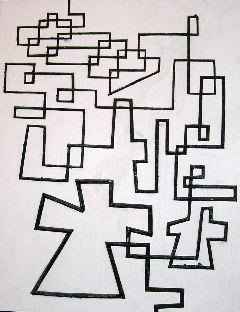Roanne, France
It is the hour of the aperitif, and the cafes here fill with their regular clients. Occasionally, the conversation slows as the habitues scan the arrival of a newcomer.
At one table in the Michelin three-star hotel-restaurant Troisgros, Jean-Baptiste Troisgros, a vigorous man of 71 who is the “patron,” twirls a glass of red wine and looks warily at its color as he sniffs its aroma.
“I turn the glass,” he says. “A dancer turns and sends gestures to her audience, and so I turn the glass to let the wine send its smell to me. I look at it. I taste it.”
The others wait for his judgment, but he is in no hurry.
“There's only wine,” he finally observes. “Red wine. The white wines, with the exception of perhaps of chateau d’ yquem and champagne, haven't come to term. They are microbian people kept alive with penicillin. As for rose, its aborted, a snare for the gullible, made for idiots who understand nothing.”
He calls the waiter and sends back the red wine to be chilled.
“People serve the white and rose cold and the red warm,” he said. “Why? because 1000 years someone said it should be done that way --- and he was the strongest and imposed his view. When you serve red wine at 27˚C what do people do? They gasp for water, for ice. They're burning up. The temperature for Beaujolais is 14˚C.”
Troisgros puts his second glass down. “This is a `64” he says. “You play blindmans bluff with the wines of `64. They're welfare children. You don't know where they come from. It takes to time to know what you're drinking.
The `66 you recognize at once. It has backbone, vitality and courage. The `67 is astringent, and the `68 worthless, but the `63? It's dead. Forget it. If your child dies, you mourn, but you bury it.
“The `61 is a learned teacher and ever so understanding. The `62 is a wise pupil who walks hand in hand with `61 and almost equals his master, but he does not quite have the stature of the `61.
“The `69 is the wine of the bourgeois era ----- a splendor, a peace, a calm. In France the bourgeois are numerous: the Communists are bourgeois, as are those who lead the people and go to church only on Sunday.”
“My two sons learned to know wine from me, and I from my father, and he from his father,” Troisgros continues. “And so it goes in France --- the acceptance of received ideas, the lack of innovation. That is why we are so far behind the world, and the borders of his curiosity are those of his country. Like some of his wines, he travels poorly.”
The patron moves to the dining room, but instead of ordering dinner, he sits before a confusion of gleaming crystal. In each glass there is a little red wine. He is smiling as though each wine has whispered to him its most private confidence.
Having listened and tasted he is ready for the next course ----women.
Troisgros sighs with evident pleasure and concern. “The Frenchwoman doesn't see what you do for her,” he complains. “The gifts, the courtesies, the dinners, the dresses, the jewels. You're a scoundrel, you're not nice, you're not agreeable, you don't take her out. That's the Frenchwoman's conversation.
What is the best age for a woman? asks one of his table companions.
“I see women of 50 or 60 who are nuggets of gold, still coquette, not faded, free, ready to be of service.”
“From 35 to 45 women are old, and after 45 the devil takes over and they're beautiful, splendid, maternal, proud. The acidities are gone, and in their place reigns calm. They are worth going out to find, and because of them, some men never grow old. When I see them, my mouth waters.”
He quickly adds: “That does not mean I'm interested in marriage. In France nobody's interested in marriage anymore --- except a few priests.”


